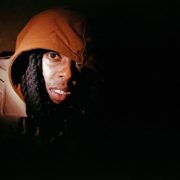A Quick Ting On Afrobeats with Christian Adofo
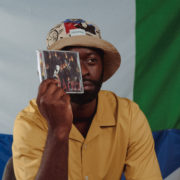
The first time I spoke to Christian I was taken aback by how deep his voice is when he greets me on FaceTime to interview me about my photographic process. About a year later, the tables have turned, as I meet Christian again for the first time in person to talk to him about his upcoming book A Quick Ting On Afrobeats.
The lead up to Christian’s debut book has been nearly a decade in the making, which is the time over which Christian’s career as a writer, cultural curator and more recently the creative producer at Crudo Volta radio spans. During that time Christian has interviewed legends like James Barnor and current star Julie Adenuga who is part of the cohort shaping today’s cultural landscape in music and entertainment. From time, Christian’s writing has sought to uplift African talent as well as map the key moments and people that have contributed to disseminating sounds from Africa into the mainstream worldwide.
Essays such as ‘ACS, Uni Raves & the rise of UK Afrobeats‘, in which Christian aptly, eloquently and always with a sense of humour, documents pivotal cultural moments, are important pieces of writing that ensure our stories are recounted accurately by us. His recent appointment at Nike as one of the brands creative writers is also a testament to his writing ability.
Repping the flags that signify where Afrobeats started and what it has become today, Christian talks with us about his early music influences and what led him to write A Quick Ting On Afrobeats.
This interview has been edited for clarity.
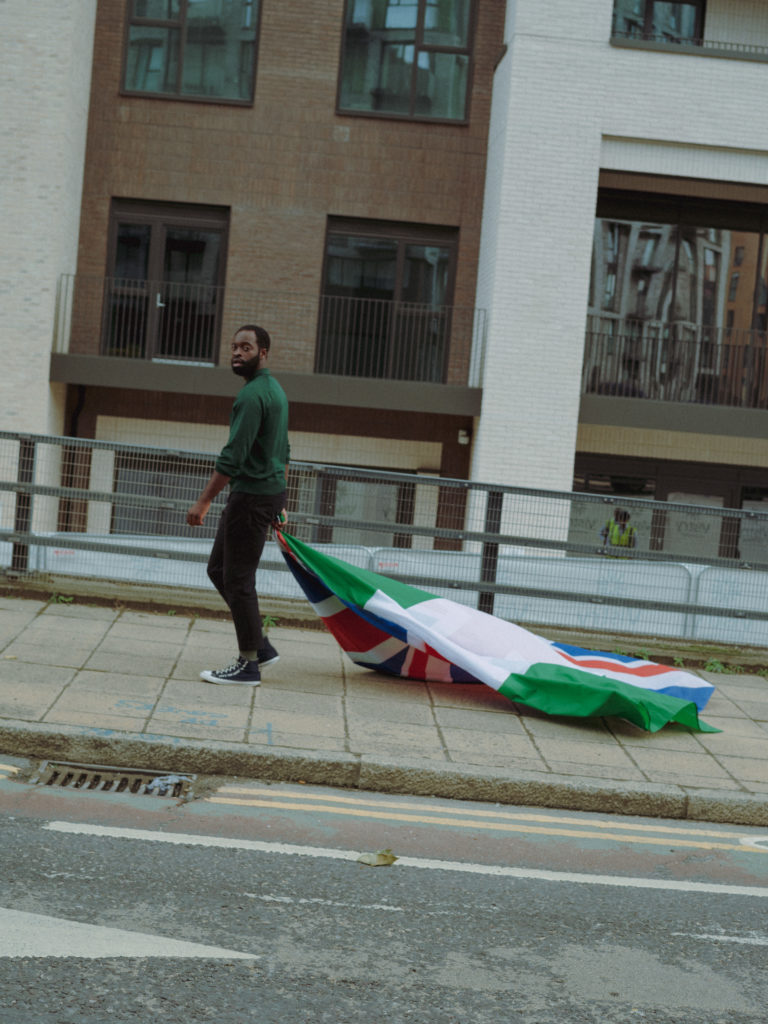
TJ: What is being a writer like for you?
Christian: The reality of being a writer for me is about putting pen to paper. I know a lot of people when they start creatively, they like to immediately go, type, open up a word document. For me it’s very important to trial and error and get a sense of, [or] fine-tune what I want to see as a final product. So I’ve always used that as a method to add different words, to figure out a flow or different parts of the research or things that might connect in a piece. So that kind of forms the base of my writing.
TJ: Is writing something you always thought you could do?
Christian: I think initially, I mean it’s very lucky, I always thought writing was something I wanted to do, because my Dad would always, any kind of form of literature or prose or copy, he just let me read and be a lot more kind of well rounded. Not only to make my writing better, but to be able to speak better, and communicate with other people, even people that weren’t maybe from the same background as me. So having that as a kind of resource, as a basis has definitely helped my approach when it comes to working, especially on feature articles where I can sit down with an artist, or sit down with a musician for like 2-3 hours because I’ve really tried to understand where they’ve come from, what inspires their creativity and what kind of keeps them going.
TJ: Was music a big thing for you growing up in your household, and how did it influence your taste now?
Christian: Music was a massive, integral part of my household growing up. You know my Dad had his big vinyl and CD collection. He was also a DJ so I used to follow him most weekends, carrying his collection, setting up the equipment, seeing how to curate a vibe for people in the space and how people appreciate that as well. Within that, my mum was sometimes the kind of host, the MC, so they were essentially a little double act going around mostly North East London, playing these hall parties and occasions for a lot of people. On a personal level, I think music has always been something that’s been integral in my subconscious. I’m one of them people, where if I’m out in a club or festival and I hear a song which has a sample, I’ve been known to cup my ears for like 2-3 minutes and people think something is going wrong but I’m just trying to figure out in my head where I’ve heard or where this song has come from, and I think it shows a level of how much passion or how much my parents approached how they listened to music.
TJ: How has music influenced your style?
Christian: I think massively. Growing up I used to listen to a lot of quite Indie music, especially bands like Block Party, the lead singer who’s of Nigerian origin, he used to wear these like Fred Perry tops, so that kind of preppy style, very clean. Pharrell, I’m a big, massive Neptunes fan as well, so he’s another one I used to look out for, I guess the designs and pastel kind of colours as well. And then, Andre 3000 in terms of individuality and that being married with his lyricism is a big one, in terms of how I try to maybe approach my writing in a way. I want people to feel like I’m speaking to them directly, and I feel like through fashion that’s a big way in where music kind of marries itself.
TJ: So let’s talk about your book. Why Afrobeats for the topic?
Christian: So, my forthcoming book A Quick Ting On Afrobeats, I wanted to choose this topic to really understand the concepts of where the culture or the music has kind of come from. A lot of times when it comes to music of Black origin, especially when it gets into like a global or kind of pop realm, we’re very quick to forget where things have developed, or [the] locations in which have formed these different kind of migrant communities, and especially in the diaspora helped to kind of cultivate and push the music. With Afrobeats in particular, I feel like the diaspora has played a massive role in pushing that to the forefront, and almost allowing kids that are born either in the UK or elsewhere in maybe Europe to really try and reconnect with the culture through this genre.
TJ: What was the process like of getting information, speaking to people, researching, editing. How was it? And did you enjoy it?
Christian: The process initially, it was quite tough, arduous. I find with anything I write at the start it can be quite strenuous because you set the bar for yourself so high in terms of who you can interview, who you can speak to but I guess when I initially got over the knock backs from certain people who I wanted to interview, I realised that I kind of let the universe decide, with regard to how the story or how the book will be informed. A lot of it has been quite lovely. As an example, for the Borga highlife chapter, I remember watching this remake of this film called High Infidelity. The remake was about a woman, a character played by Zoe Kravitz in a Brooklyn record store. In one of the episodes at the start they played like a Borga highlife tune, and I was like oh crap, I remember this tune. So I went online, I found the tune but then also found the original guy who made the music in the late 70s. I sent the email off, wasn’t expecting to hear much because of my previous experiences but then went to bed, got an email the next morning, the guy responded within like 5 minutes, and then was able to connect over WhatsApp. Those kind of little journeys, in terms of reconnecting and listening to elders of this music has been quite nourishing in regards to bringing this together and understanding that aside from people making music that there is a human quality to them as well.
TJ: Fela’s Afrobeat was very political in nature, and Afrobeats today is less so. Do you think it’s a bad thing that music isn’t as political in the west, and do you think artists could do more to speak about what’s going on or reflect the times in their music?
Christian: I feel like especially with Afrobeat, and Afrobeats in the present context if we’re talking from the kind of Fela context, that’s someone who’s gone on a very personal journey with how they identify with being African and how they identify with being Nigerian. But that came from [Fela] moving to the UK, then travelling to the US and seeing the plights [of] how Black people are treated around the world. So you have that kind of boost within you, when [he] came back to the motherland, he’s probably more charged up than ever, knowing that he has to speak the truth to the people because the propaganda in the newsreels aren’t portraying the daily lives of what it means to be Nigerian and the struggles ahead.
That’s something that’s probably less apparent now, with regards to being on the ground, and demonstrating and fighting for truth. But I feel like with the END SARS movement, as an example, speaking out and making these issues more in the wider realm, that’s a start. I probably would like more artists if they can, in the long term make more of a commitment to that side of things. Maybe they are and I just don’t know, or may be making donations on the side, but it can go a lot further than that because especially in Nigeria, where you’ve got a population of 200 million plus people and a lot of people look up to these artists, as big real role models and relatable in some kind of sense that they can definitely make a way in terms of helping and bringing a light to these issues, not only on the ground but letting people around the world know there is still massive injustice despite the celebration of the music and the culture.
A Quick Ting On Afrobeats by Christian Adofo will be released early next year. Keep up with Christian on socials here.
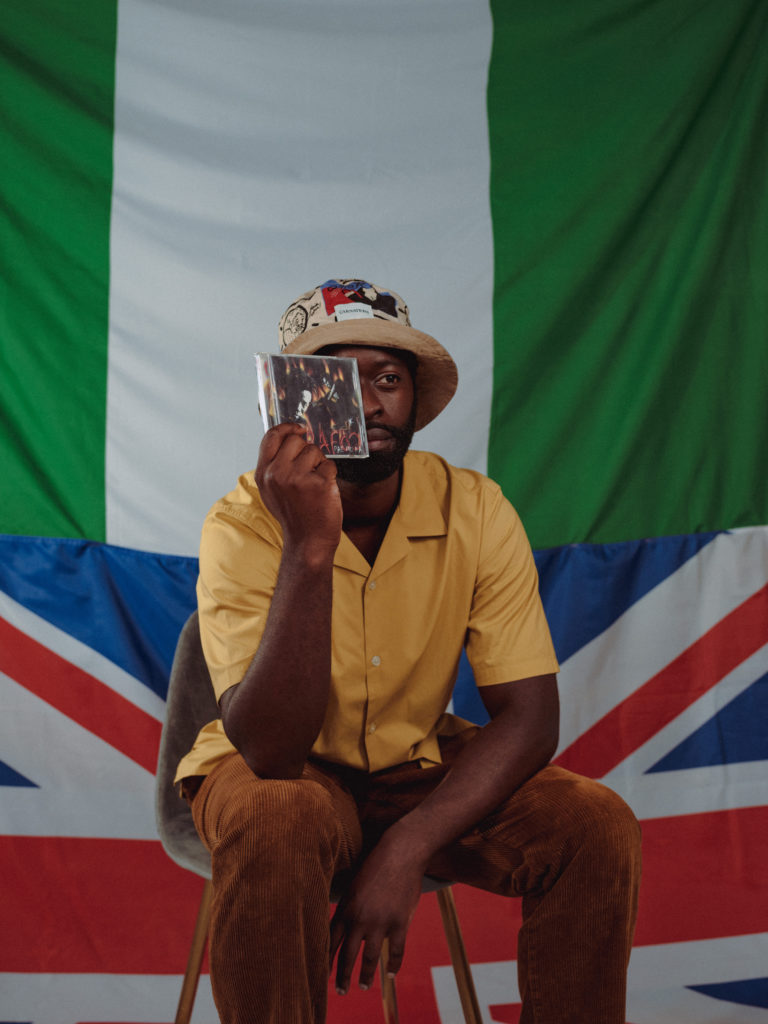
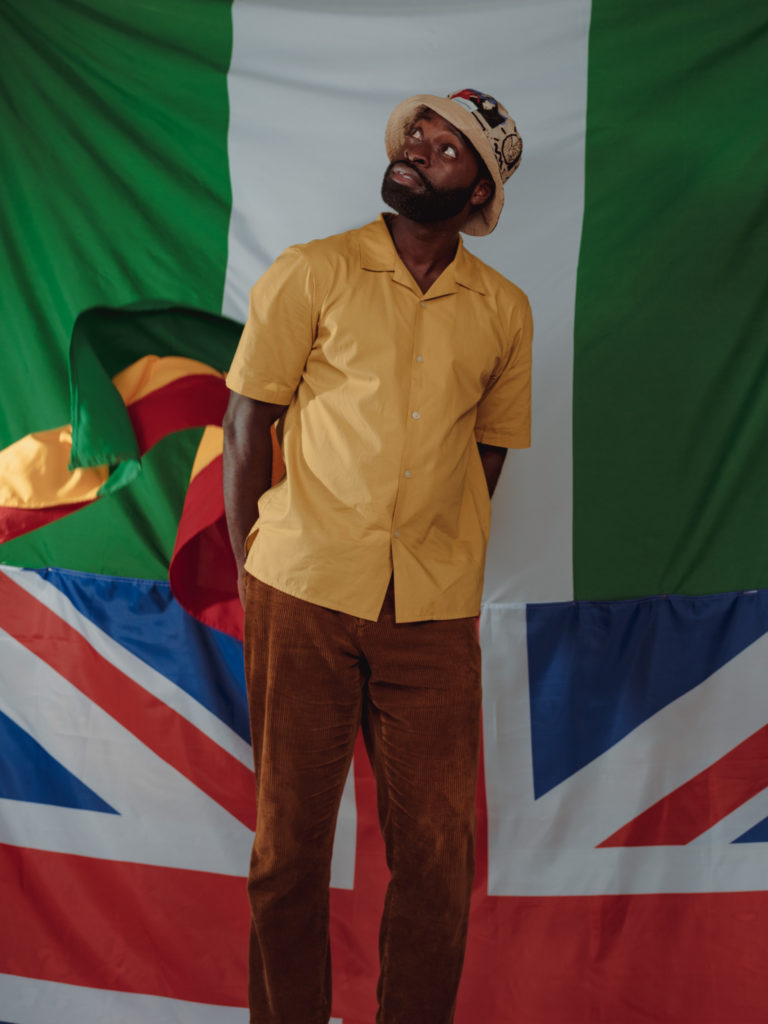
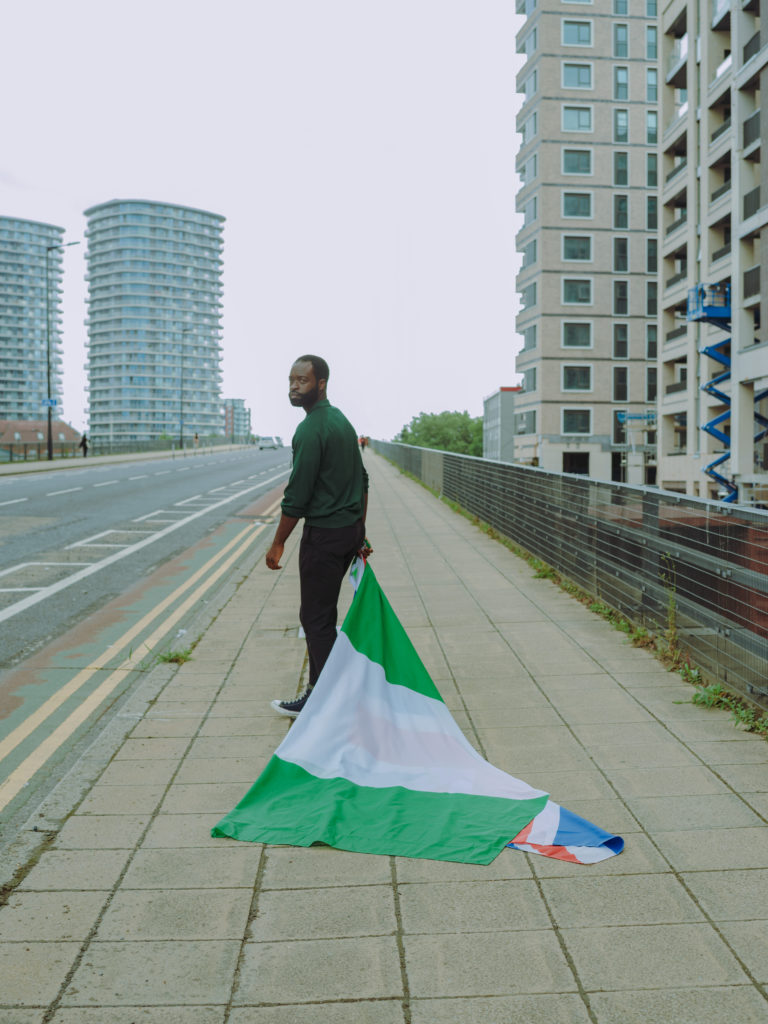
Male Grooming Vanessa Nakalanzi
Photography Terna Jogo
Video Sam Adjaye
Discover more from GUAP’s Fashion section here





![ZINO VINCI’S ‘FILTHY & DISGUSTING’EP BRINGS YOU TO THE CORE OF THE ARTIST [@ZinoVinci]](https://guap.co/wp-content/uploads/2023/10/Zino-4.jpg)

